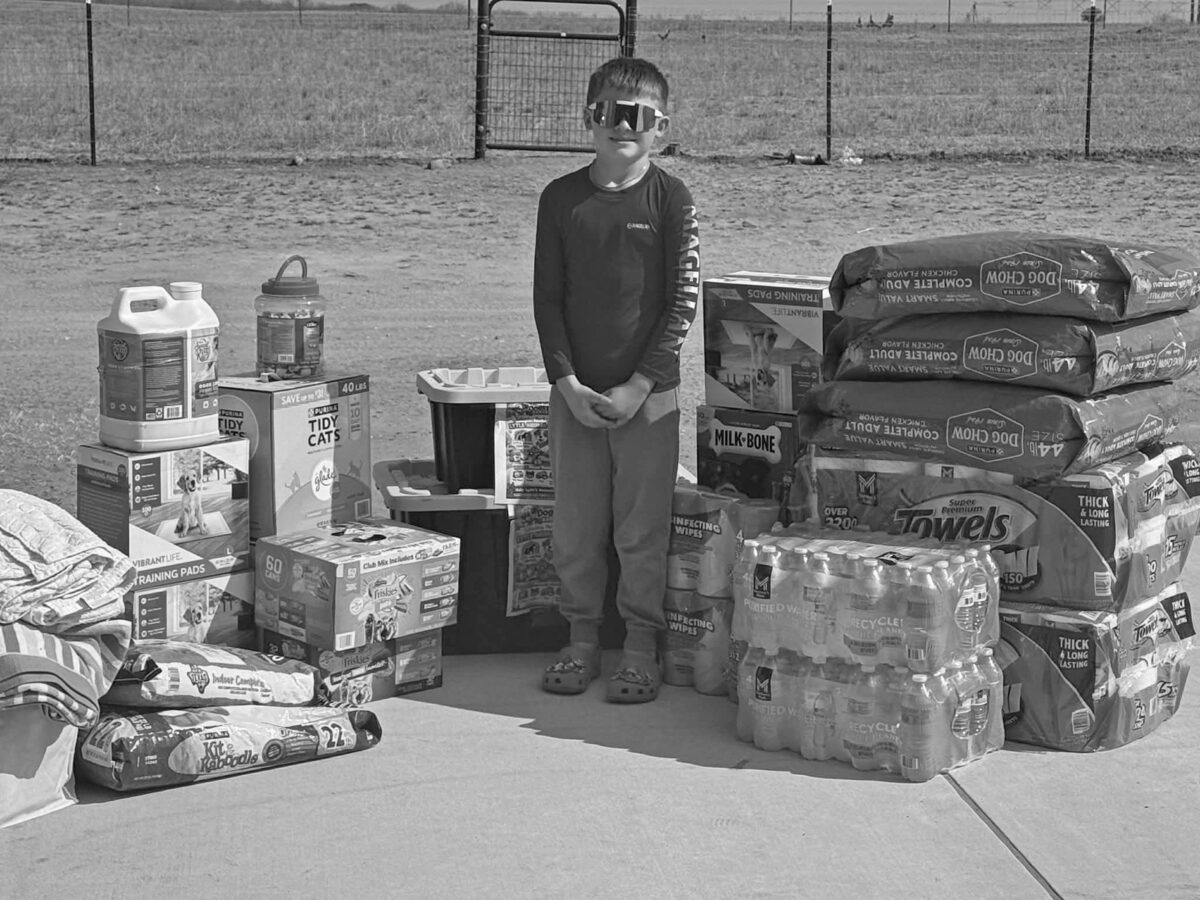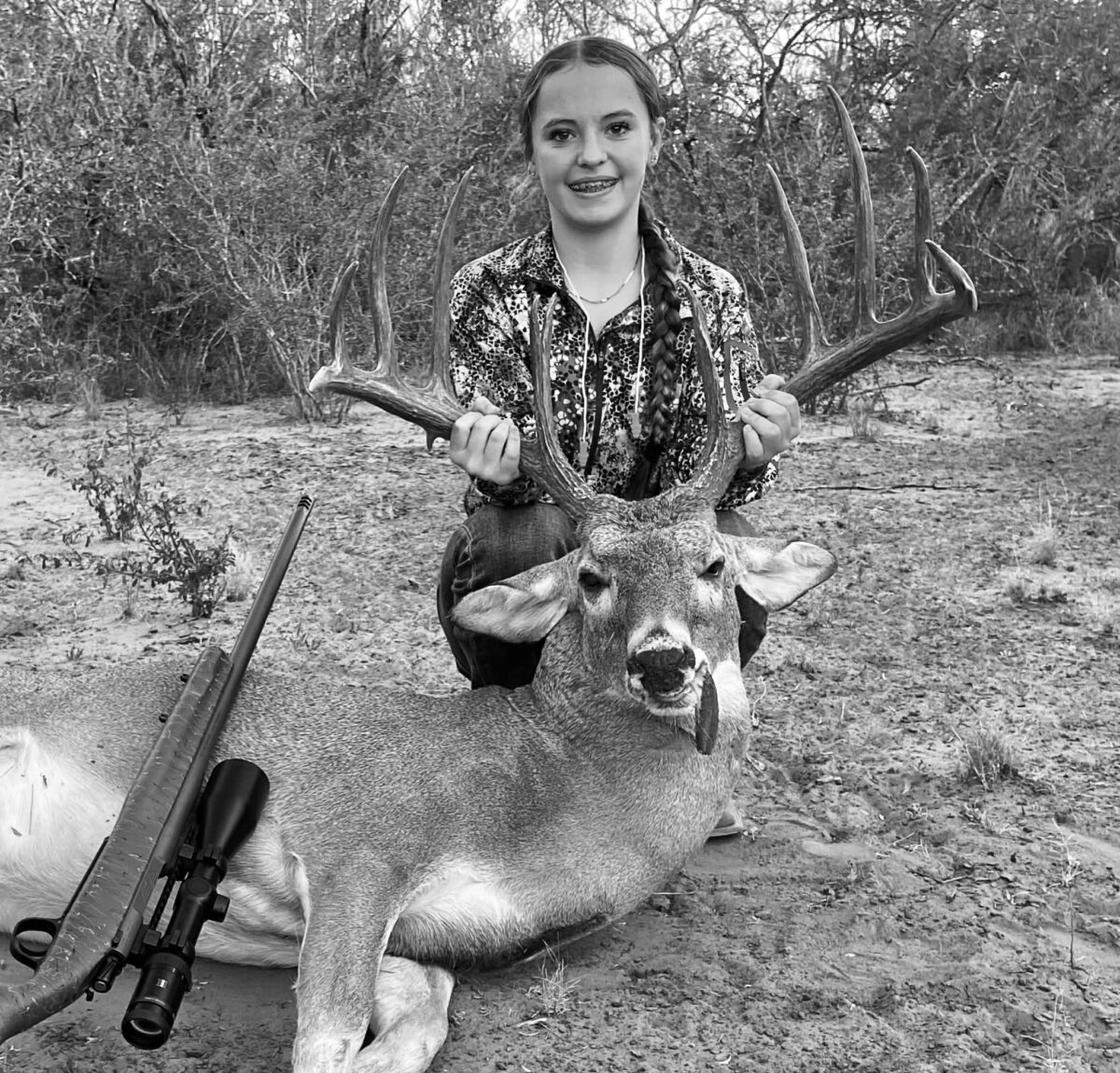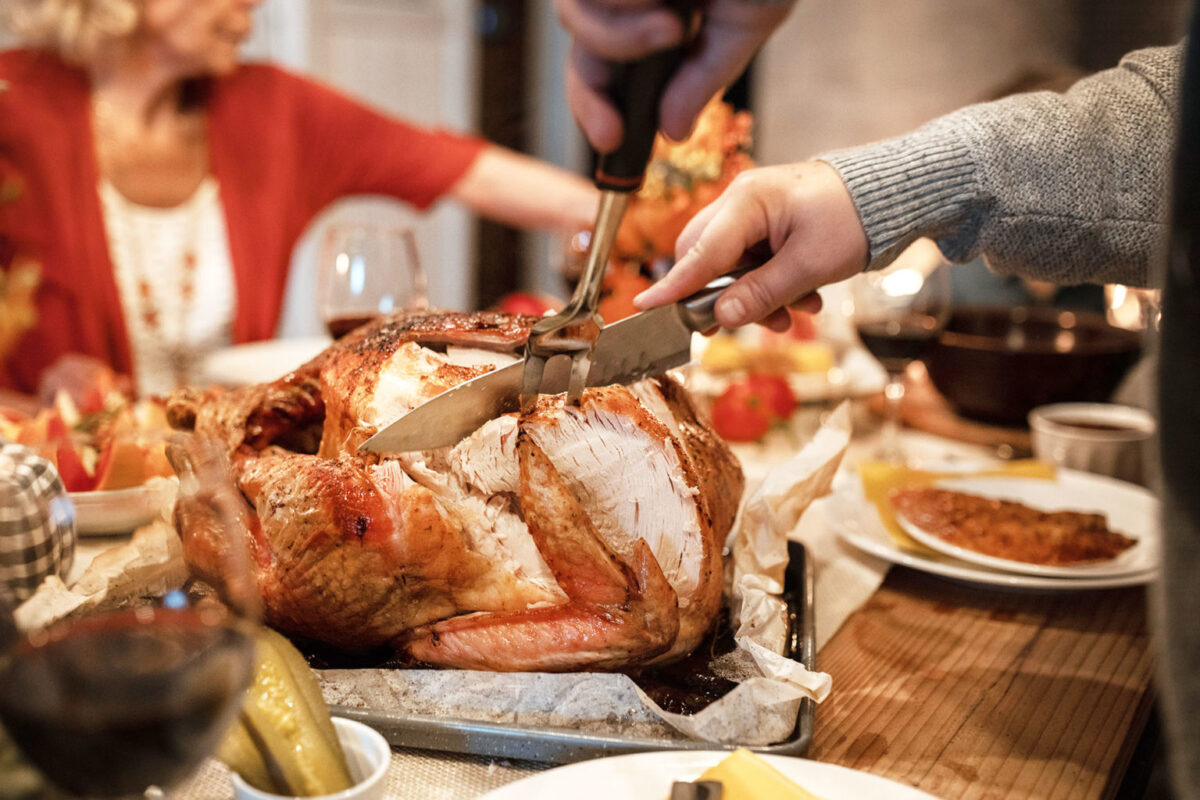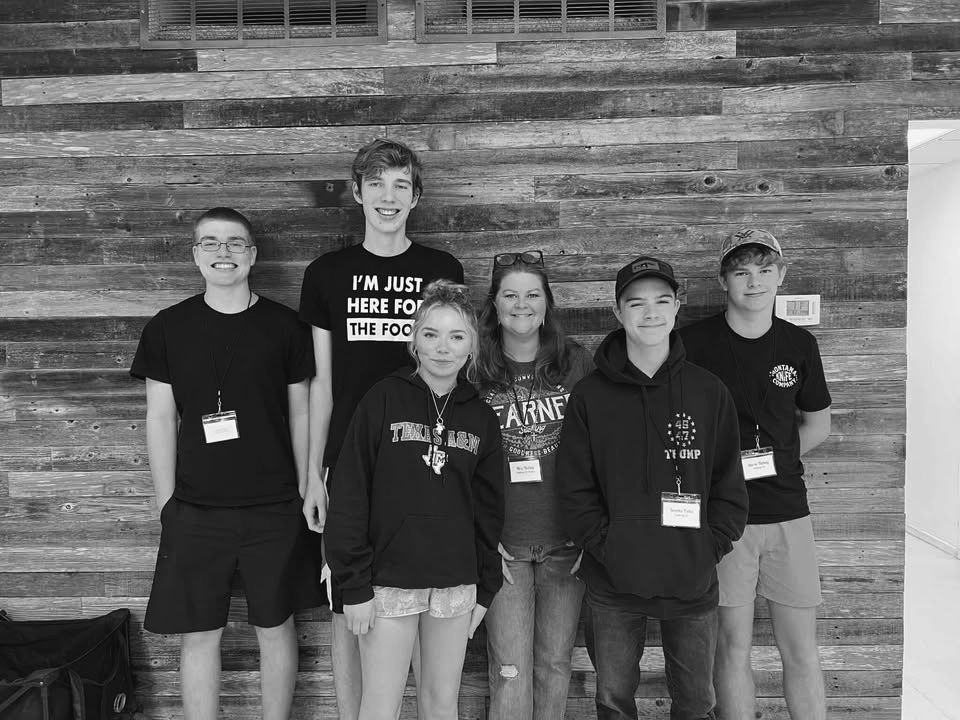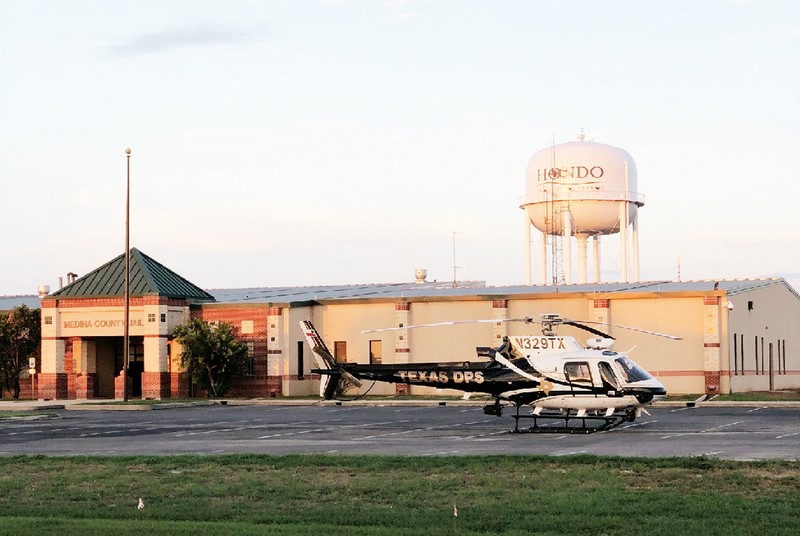Devine third grader Declan Brookfield, 8yrs old, recently helped out by doing a supply drive for Lytle Animal Shelter. Way to make a difference!
Category: Health & Lifestyles
Birth Announcements, Engagement Announcements, Feature stories and photos about local residents in Devine, Natalia, Lytle, Bigfoot/Moore areas. Also special features on the latest research and healthcare trends.
New World screwworm prevention efforts and related operational updates
As part of preventative efforts to stop the northward spread of NWS, USDA has established a new sterile fly dispersal area (polygon) that will extend approximately 50 miles into Texas along the U.S. border with Tamaulipas, Mexico. While NWS has not been detected in Texas, South Texas landowners may observe preventative sterile fly deployments in their area.
Sterile NWS flies do not cause infestations and are a proven, safe tool used to suppress NWS populations by reducing egg production. These deployments may not be noticeable during day-to-day operations, but targeted aerial and ground dispersals are a critical component of an effective NWS prevention strategy.
We are currently awaiting further guidance from USDA and TAHC regarding the specific timeline for sterile fly dispersals in Texas. We have also formally requested that landowners be notified in advance of any aerial or ground-based sterile fly deployments, so producers are aware of activity occurring on or near their operations.
Operationally, Moore Air Base is scheduled to receive its first shipment of NWS pupae on Monday, February 2nd to test dispersal systems. Following this test phase, the dispersal facility is expected to be fully operational within the next two to three weeks. On the production side, Mexico’s NWS facility is projected to reach a capacity of approximately 100 million sterile flies by the end of the year. Additionally, groundbreaking on the production facility at Moore Air Base is scheduled for March 2026, with completion currently anticipated in 2027.
Texas & Southwestern Cattle Raisers Association will continue to monitor developments closely and share updates as more information becomes available.
Source: TSCRA.org
Shortage of rural vets endangering the nation’s food supply
By Justin Welsh
America is facing a food system shortage. Livestock veterinarians are the new endangered species. Farmers are losing access to the experts they need to keep our food supply safe.
More than 500 U.S. counties across 46 states are federally designated veterinary shortage areas. Just 1.3% of registered veterinarians specialize in food animal practice. This frontline workforce is fraying at a time when U.S. farms produce over 94% of all red meat and poultry Americans consume.
Addressing this growing concern will require sustained industry investment in education that makes veterinary careers more accessible, in recruitment efforts that prioritize rural areas, and in hands-on training that adequately prepares the next generation.
Food animal veterinarians are the unsung heroes of American agriculture. They inspect livestock, administer vaccines, and provide critical guidance on herd health. They support the viability of family farms, local economies, and the safety of the food on our tables.
Yet the United States has lost 90% of food animal veterinarians since the 1950s. And the number of these critical vets continues to decline.
For one, the cost of veterinary education is prohibitive. New graduates leave school with an average debt load of about $150,000. For those called to food animal practice, that financial burden is often compounded by lower pay than they could expect to earn in clinics that focus on companion animals.
Then there’s…LOGIN TO CONTINUE READING at www.devinenewsmembers.com. You will get instant access to our full E-edition, and begin getting the newspaper delivered to your home next week for $36 a year in Medina County. Support important local city, county, and school news like this!
Local author’s story featured in Chicken Soup for the Soul’s “Pets, Pets, Pets” book
‘Beauty bias’ strongly shapes who we view as leaders
By Emma Lawson, Texas A&M University Division of Marketing and Communications
New research shows physical attractiveness is one of the first qualities used to determine leadership skills. Read online
BRYAN-COLLEGE STATION, Nov. 26, 2025 — According to a new Texas A&M University study, physical attractiveness has a measurable — and surprisingly strong — effect on who’s viewed as leadership material, influencing decisions across industries and institutions.
The findings, based on a meta-analysis of 65 pre-existing studies, confirm that the “beauty bias,” a term often used to describe situations where attractive people gain advantages based on looks alone, plays a significant role in who is chosen for leadership roles in classrooms, companies and executive suites. Published in the Journal of Management, the paper co-authored by Dr. Stephen Courtright, professor of management at Texas A&M’s Mays Business School and director of the Flippen Leadership Institute at Mays, concludes that physical attractiveness is consistently linked to perceived warmth and competence, in turn influencing who is seen as a leader.
“What we find is that people lend a lot of credence to good looks when they’re selecting leaders, even though good looks have no effect on leader effectiveness whatsoever,” Courtright said. “And the reason we fall into this beauty bias is because we assume that better looking people are more caring and competent — which also isn’t the case based on past research.”
The tendency to associate attractiveness with perceived warmth may explain why certain individuals are perceived as leaders before they’ve demonstrated their skills or experience. Courtright, whose research focuses on organizational leadership, teamwork and work-family dynamics, said that people subconsciously associate attractiveness with having strong people skills and intellect.
One famous example: the 1960 presidential debates between candidates Richard Nixon and John F. Kennedy. Viewers who watched on television overwhelmingly favored Kennedy’s youthful, charismatic and suave appearance, while radio listeners preferred Nixon.
“Essentially, in the face of limited information, we use physical attractiveness as an indicator of the key skills we want in leaders — namely, being smart and being good with people,” he said. “And it doesn’t matter if you’re an executive, a politician, a frontline manager or a college student. We find that the beauty bias is very common and more pervasive than what we originally thought.”
To quantify the beauty bias, Courtright and his colleagues empirically analyzed dozens of pre-existing studies conducted by social scientists after reviewing more than 1,000 research articles exploring how physical traits relate to organizational outcomes. Their goal was to identify how attractiveness specifically influences perceptions of who should become a leader — and whether that influence differs by gender, culture, work experience, and other factors.
The results show that this link is not only real, but sizeable. Compared with gender, personality traits, or IQ, physical attractiveness was a stronger predictor of who is seen as a leader. Furthermore, the beauty bias was equally strong for men and women — meaning both could be unfairly helped or hurt by it – and it was consistent across different contexts and cultures.
The good news is that while physical attractiveness heavily shapes early impressions of leadership potential, it has no impact on actual leadership capabilities, Courtright said. Over time, teams begin to value qualities that determine leadership success — like knowledge and empathy far more than appearance.
Hiring managers can also use well-defined and valid criteria when determining leadership potential so they can avoid promoting unqualified individuals to leadership positions, Courtright said.
“You can’t control some things about attractiveness other than ‘dressing the part,’ but what you can control is how much you can connect with people and gain competence as a leader. Ultimately, that’s what makes the most difference in becoming a successful leader: Can you do your job well, and are you good with people? If you have those two down, you have the skills needed to be a great leader, no matter what your level of attractiveness might be,” he said.
“Caitlin’s Christmas Lights” Competition 2025
It’s time to light up our community and be sure to enter the Christmas light contest held each year in loving memory of the late Caitlin Jaworowski, to help other families now battling cancer. The entry fee is simply a donation, and anyone can enter, with the grand prize winner getting a $250 gift card!!!!
The deadline to enter is December 20, and please make sure your lights are on the evenings of December 21-22nd as the family will be coming around for judging.
PRIZES
The 1st prize winner will receive $250 donated by Country Gals, and the 2nd prize winner will receive $150 donated by 2 Bar Ag Services, plus, several other small awards will be given for separate categories.
DONATE
If you don’t want to enter the contest, please remember we are a non-profit organization operating year-round, so your donations are what will help us help others who are dealing with cancer.
ENTER LIGHTS CONTEST
Sign up in person at Country Gal’s Market located at 109 W. Benton Ave, Devine, TX 78016 or call Justin Jaworowski 210-275-9025.
About us:
We are a 501c non-profit organization dedicated to raising money for individuals and families dealing with cancer. Our goal is to help alleviate some financial burdens, allowing them to focus on their health, family and healing.
Justin Jaworowski states, “When my wife Caitlin was diagnosed with cancer 4 years ago, our community, family and friends came together in this very same way to help us. I created this non-profit organization to honor her and her fight with cancer. The support of local community can really help take some of the burden off and this is our goal here at Caitlin’s Christmas Lights.”
Our lights contest is our primary fundraiser. Entry is a minimum of $10 to enter your light display.

Texas Deer Numbers Stay Strong
Quinn Coleman, 14 of Devine, with a nice buck she harvested at the Anderson Ranch in Dilley, TX.
Oct. 31, 2025
AUSTIN — To hunters, springtime in Texas is often viewed as chasing turkeys through hot, humid weather, or hanging up the firearm for a fishing pole. For white-tailed deer, spring represents a time for growth: body growth, antler growth and population growth.
Texas began the growing season under widespread drought in March, but most of the state received much-needed rain in late spring. Where it rained, plant growth boosted antler development in bucks and allowed does to load up on calories for birth and nursing.
Rain came late to the Edwards Plateau and South Texas, but while summer rainfall helped lower temperatures and allowed for a late season green-up that benefited fawn survival, it was too late to greatly benefit antler development in those regions.
The general deer season kicks off Nov. 1 and runs through Jan. 4, 2026, in the North Zone and through Jan. 18, 2026, in the South Zone, giving folks plenty of chances to go from field to table with their harvest.
Hunters taking advantage of Texas public hunting lands must have an Annual Public Hunting Permit. It’s also important for public land hunters to consult the Public Hunting Lands Map Booklet to review regulations that may apply to specific areas. The Texas Hunt & Fish app can be used to complete on-site registration electronically at a public hunting area.
Ecoregion Highlights
The Cross Timbers in North Texas has the second highest deer population in the state and will offer hunters plenty of opportunities to harvest mature bucks.
Despite what seems like lasting spring drought conditions, the Edwards Plateau is a great deer hunting region for those looking for quality animals. It consistently has the highest hunter success rates in Texas. The catastrophic Hill Country floods may have had local impacts on fawns near river and stream channels, but most deer were able to reach higher ground.
Post Oak Savannah hunters can expect a great season of chasing mature bucks thanks to good fawn survival in previous years.
In the Pineywoods, Texas Parks and Wildlife Department (TPWD) biologists work with landowners and timber companies to restore and maintain quality deer habitat, which has helped sustain deer populations.
White-tailed deer population growth in the Rolling Plains in recent years has made the area a hotbed for mature bucks, and another great season is expected.
The South Texas Plains are known for mature bucks with above-average antlers. For hunters looking for a once-in-a-lifetime trophy, South Texas is often seen as the premier big buck destination.
For a detailed white-tailed deer forecast by ecological region, visit the White-tailed Deer Management page on the TPWD website.
Good Habitat Management Creates Harvest Opportunities
For many landowners and hunters, deer management doesn’t begin when the season opens. Healthy deer rely on good habitat and herd management, as well as spring rains from Mother Nature. By properly managing the land throughout the year, landowners are setting the stage for a successful deer season.
Antler growth is directly related to rainfall between April and June, and the improved habitat that follows. This year, hunters should see slightly above-average to average antler quality for most of the state. The Edwards Plateau and South Texas should expect slightly below-average to average antler quality since they missed out on spring rain. The Pineywoods, portions of the Post Oak Savannah and Cross Timbers received timely spring rains and should see above-average antler quality.
Much-needed summer rain and mild weather helped more fawns survive this year. Ranches that manage deer populations through hunting and improving native habitat will see steady improvements over time.
Protecting Texas Wildlife
Texans enjoying the outdoors are the first line of defense in protecting wildlife, livestock and humans from diseases that could have devastating effects.
New World Screwworm
New World screwworms (NWS) are parasitic flies that lay eggs in open wounds or moist body parts, such as those located in the nostrils, eyes or mouths, of live warm-blooded animals. These eggs hatch into a type of parasitic larvae (maggots) that only feed on living tissue, while other species of fly larvae prefer dead or rotting tissue. NWS larvae burrow or “screw” into living tissue with sharp mouth hooks, giving them a screw-like appearance. Infested wounds quickly become infected and, if left untreated, will kill the animal.
If you see LIVE animals with maggots, report it to your local TPWD wildlife biologist. Early detection is key. Do not delay if you suspect an NWS infestation. Reporting is crucial to response efforts and the eradication of NWS.
For more information, visit https://tpwd.texas.gov/screwworm.
Chronic Wasting Disease update
Landowners and hunters play an important role in managing Chronic Wasting Disease (CWD) and can reduce its impact by managing populations, properly discarding unused carcass parts, reporting sick deer and voluntarily testing.
Hunters are reminded to review the TPWD website and Outdoor Annual app to review this year’s season dates, bag limits and information about proper carcass disposal. Hunters following these regulations are allowed to debone carcasses to help prevent the accidental spread of wildlife diseases.
More information about carcass disposal regulations, voluntary sampling, check station dates and hours of operations can be found on TPWD’s CWD web page.
Cost of Thanksgiving turkey spikes
Consumers could see higher prices on centerpiece turkeys for Thanksgiving this year due to higher wholesale prices. But prices are also lower on many other items used for preparing traditional holiday meals. (Adobe Stock)
Per pound price for whole turkeys up 70% compared to last year
By Adam Russell
Prices for centerpiece turkeys are up, but overall consumers are likely to see a mixed bag of price increases and decreases as they shop for traditional Thanksgiving holiday meals.
While recent price trends for whole turkeys were much higher than last year, the cost of other traditional fare like hams and potatoes, as well as baking items like eggs and butter were lower, said David Anderson, Ph.D., Texas A&M AgriLife Extension Service economist and professor in the Texas A&M Department of Agricultural Economics, Bryan-College Station.
Anderson said overall prices and seasonal specials indicate opportunities for shoppers to find value as the holiday approaches.
“You may see higher prices on some items but remember that grocery stores always have a strategy for Thanksgiving,” he said. “Typically, it’s built around a special feature on the turkey to get people into the store, and I suspect this year will be no different.”
Turkey production down, prices up
Anderson said wholesale prices for whole turkeys were $1.68 per pound compared to 99 cents per pound this time last year – a 70% increase. Two factors – the resurgence of highly pathogenic avian influenza, HPAI, and lower overall turkey production – have reduced supplies that have triggered higher prices.
Turkey and egg production were hit hardest during previous outbreaks of the disease, and turkey supplies are still recovering from losses that continued into late spring. Commercially raised turkey hens take 15-18 weeks to reach maturity while larger toms take 20 weeks or more to reach harvest weights.
“Turkey production takes time, and so even the recovery from avian flu in the spring is impacting supplies,” he said. “The buildup on whole turkeys for Thanksgiving happens throughout the year as birds are held back to meet that holiday demand.”
Anderson said turkey production is down more than 8% year over year as the industry continues to grapple with low prices, increased input and labor costs, and shifting consumer demand. Aside from whole birds for the holiday season, most turkey ends up as deli meats in grocery stores and sandwich shops.
While Americans are eating double the amount of turkey they did in 1970, the 14.8 pounds per person consumed in 2023 is 18% lower than the 18.1 pounds per capita consumed in 1996.
Finding fewer specials so far
Many grocers set contracts with turkey wholesalers long before the holiday to lock in prices and the number of birds to meet expected demand, Anderson said. This can present opportunities for grocers to offer special prices or buying incentives to shoppers.
The retail outlet survey data shows grocers have been offering fewer specials compared to last year, he said. Prices may be lower in some cases, but there are fewer items being featured with special prices.
Anderson said it would be difficult to speculate on what triggered this retail trend, but he’s curious to see if special offers trend upward in the next few weeks.
He suggests shopping early for turkeys if size and brand are a consideration but that shoppers could find deals on centerpiece birds by shopping late as well.
“Even at the higher price, turkeys always seem like a good value relative to other meats when you consider leftovers and secondary meals that we get out of them,” he said. “As an economist we tend to focus on price, but in this case, I have to consider value.”
Mixed bag of prices on other items
Meanwhile, shoppers are also likely to find lower prices on some items like baking pumpkins, potatoes, milk and eggs, and higher prices on other meats like hams and steaks.
Eggs were $1.60 per large dozen compared to $3.30 for the same dozen last year, a 51.5% decline, Anderson said.
Dairy products like milk, butter and cheddar cheese have also experienced a sharp price decline because of higher production, he said. The U.S. dairy herd hit its highest number since the 1990s, and the nation’s 9.5 million milk cows are producing 28 pounds more milk per cow per year than they did last year.
On the other hand, potatoes like russets for baking and yellow gold for mashed potatoes have gone up slightly. Anderson said. Russets were 98 cents per pound compared to 84 cents per pound last year while yellow gold potatoes were 87 cents per pound compared to 74 cents last year.
Prices on another popular holiday item – cranberries – were also up – $2.45 per 12-ounce bag versus $2.37 last year, Anderson said.
At the retail level, prices for sliced boneless hams were relatively static $5.54 per pound compared to $5.53 per pound last year. The cost of spiral sliced hams was up – $3.17 per pound compared to $2.88 per pound last year.
“I think consumers are feeling the pressure at grocery stores with higher prices overall,” Anderson said. “But I also think there will be opportunities to find deals on those go-to items we buy to create traditional Thanksgiving Day meals.”
Youngsters hope to earn passports to England
Photo Caption: Left to Right: Lucas Winbolt (Atascosa County), Elijah Gerard (Bexar County), Sophia Gutierrez (Medina County) Skye Richey – teacher (Uvalde County) Brooks Ficke (Medina County) Aaron Richey (Uvalde County)
A dedicated group of homeschooled high school students from Medina, Uvalde, Atascosa, and Bexar counties are working hard to make a big dream come true. These 11th-graders from the Classical Conversations Challenge III program will host a series of fundraisers to help cover the cost of an upcoming educational trip to England this spring.
For the past two years, the class has immersed themselves in British literature, European art, Shakespearean plays, and historical studies. They’ve memorized thirty lines from five different Shakespeare plays, written essays connecting faith and culture, and held countless class discussions—all pointing toward the moment when they can finally walk the same cobblestone streets they’ve studied.
From Yard Work to Community Service
The students have already been out in the community across South Texas, offering to do yard work, clean church grounds, and assist with local projects—all for donations. Their work ethic has earned praise from residents who admire their initiative, politeness, and willingness to serve.
The town of Utopia has been especially gracious, welcoming the students to complete projects for Living Waters Church, the Utopia Food Bank, several local residents, and even the beautification areas at the town’s entrance. Their generosity has not only provided valuable fundraising opportunities but also strengthened the students’ appreciation for community support and service.
Upcoming Drawing and Market Day Fundraisers
Next on their fundraising list is a ticket drawing featuring a lineup of exciting prizes, including:
A TurtleBox speaker, generously donated by Mummee’s
Two tickets to Cirque Musica – Holiday Wonderland at the Tobin Center
A box of Wagyu beef, assorted premium cuts
The drawing will take place on December 6, and details on ticket prices will be announced soon.
In addition to the drawing, the students will have booths set up at several local market days, including:
Sabinal Market Day – October 25
Utopia Market Days – November 1
Vintage in Verdi – December 5–6
Community members and business owners can get involved in several ways:
Donate a prize to be added to the raffle ticket,
Contribute a lump-sum donation toward the group’s travel expenses, or
Hire the students for community or yard work projects.
Every contribution helps these South Texas students continue learning, serving, and representing their communities with excellence as they prepare for this once-in-a-lifetime educational experience.
About Classical Conversations
Classical Conversations is a homeschool program that uses the classical model of education—teaching students how to think, not just what to think. Through rigorous academics, Socratic discussion, and a biblical worldview, students learn to connect knowledge across subjects and apply it to real life.
Contact Information
For more information, to schedule work, or to make a donation:
Brandi Gutierrez: 210-535-2545 | b_gutierrez80@yahoo.com
Skye Richey: 830-890-8854 | skyehomeschool2025@gmail.com
DPS Suspends Issuance of Certain Commercial Driver Licenses
AUSTIN – As of today, the Texas Department of Public Safety (DPS) has suspended the issuance of certain commercial driver licenses (CDLs) in compliance with an emergency rule change by the Federal Motor Carrier Safety Administration (FMCSA).
The department is now suspending the issuance of non-domicile CDLs and all CDLs to non-citizens who are refugees, asylees or Deferred Action for Childhood Arrivals (DACA) recipients as of today, Sept. 29, 2025. This suspension also impacts the issuance of non-domicile commercial learners permits (CLPs) and CLPs for non-citizen refugees, asylees and DACA recipients. The department has never issued any type of license to asylum seekers who have not been approved for lawful presence.
Effective immediately, CDL/CLPs will not be issued, renewed or reissued if a customer falls under the non-domicile, refugee, asylee or DACA categories. Customers with a pending issuance will not be allowed to continue any written or skills testing until the services for non-domicile CDL/CLP are reinstated.
The department will continue to update license holders and Texans as it works with FMCSA to comply with the new rules. More information will be posted on the DPS website, https://www.dps.texas.gov/section/commercial-driver-license.
This action is a part of the department’s ongoing commitment to keeping Texas roads safe. Earlier this month, Governor Abbott directed DPS Commercial Vehicle Enforcement (CVE) Troopers and inspectors to begin conducting English Language Proficiency reviews for commercial vehicle drivers on Texas roads.
